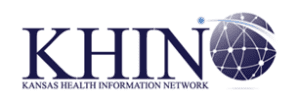Health Equity Resource Hub
KFMC and our partners believe that everyone deserves the opportunity to lead a healthy life,regardless of their background, identity, or socioeconomic status. The goal of this resource hub is to provide healthcare professionals, organizations, and communities with the knowledge, tools, and inspiration they need to dismantle health disparities and foster equitable healthcare solutions.
As you navigate through our website, you’ll find a collection of high value resources that can help you make informed decisions, raise awareness, and take action. Together, we can work towards a future where everyone has equal access to quality healthcare, regardless of their circumstances.
New Resource! All of the recordings and resources shared during the third annual Kansas Health Equity Summit can be found here.
If you can’t find what you are looking for, or have a suggestion for a great resource you’d like to share, please let us know!
Data Collection and Analysis
- Baseline Data
- Dashboard Development
- Health Information Technology
- Regulatory Requirements
Infrastructure Development
- Food Insecurity Resources
- Healthy People 2030
- Language Resources
- Program Development
- Social Risk Screening
Community Resources
- Collaborating with Community Partners
- Community Health Worker Resources
- Rural Health Equity
- Urban Health Equity
Training and Learning Modules
- KFMC/Partner Webinars
- Infographics
- Links to Webinars
- Training
Visit our Partners
Definitions
Health disparity
inequities in the quality of health, health care, and health outcomes experienced by groups based on social, racial, ethnic, economic, and environmental characteristics
Health equity
the state in which everyone has a fair and just opportunity to attain their highest level of health
Health-related social needs (HRSN)
an individual’s unmet, adverse social conditions (e.g., housing instability, homelessness, nutrition insecurity) that contribute to poor health and are a result of underlying social drivers of health (SDOH)
Social drivers of health (SDOH)
also known as “social determinants of health,” the conditions in which people are born, grow, work, live, and age that are shaped by the distribution of money, power, and resources and impacted by factors such as institutional bias, discrimination, racism, and more













